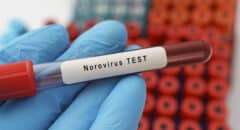
As the COVID-19 pandemic swept across the country, its devastation wasn’t limited to hospitals and ICUs—it also hit smaller, community-rooted health providers, especially Black-owned clinics. These independent, often underfunded practices have long been lifelines in communities of color, offering affordable and culturally competent care in neighborhoods where medical trust and access are scarce. Now, many are at risk of disappearing altogether.
Rutgers Health experts Dr. Damali Campbell-Oparaji and Dr. Natalie E. Roche, both faculty at Rutgers New Jersey Medical School, warn that the mass closure of Black-owned clinics could leave behind a silent but devastating public health crisis. Below, we break down seven lesser-known but deeply impactful ripple effects of this loss—and why it matters more than ever.
1. Trust in the Healthcare System Will Decline Even Further
For many patients in minority communities, Black-owned clinics are more than places to get a prescription—they’re safe spaces where cultural understanding and lived experience build trust. Historical injustices like the Tuskegee Study and ongoing systemic bias have created deep skepticism toward mainstream healthcare. But when Black physicians speak, patients listen. The closure of these clinics could strip away one of the most effective bridges between communities of color and lifesaving medical care.
2. Patients Will Lose Access to Affordable Primary Care
Black-owned clinics disproportionately serve patients on Medicaid, Medicare, or those without insurance—groups often turned away or underserved elsewhere. As these practices shut their doors due to financial strain, millions may lose access to basic preventive care like cancer screenings, diabetes management, or blood pressure monitoring. Without early intervention, chronic conditions worsen and hospitalizations increase—creating a dangerous and expensive domino effect.
3. Chronic Illnesses Will Go Unmanaged
Communities of color already face higher rates of chronic illnesses like hypertension, asthma, diabetes, and heart disease. These conditions require consistent, personalized management—something Black doctors often provide with cultural nuance. When those providers disappear, so do opportunities to manage these illnesses early and effectively, leaving patients vulnerable to complications and early death.
4. Telehealth Won’t Fill the Gap
While virtual care surged during the pandemic, many Black-owned practices lacked the technology infrastructure or financial resources to keep up. Worse, their patients often face digital divides—limited internet access, outdated devices, or low tech literacy. This digital mismatch means telehealth can’t fully replace in-person care, especially in underserved communities. Closing physical clinics leaves patients without reliable options.
5. Economic and Job Losses Will Hit Communities Hard
Black-owned clinics aren’t just health providers—they’re small businesses that employ local residents. From medical assistants and receptionists to janitors and nurses, these practices create jobs and circulate money within the community. When they close, the economic pain spreads beyond patients to families who rely on these jobs for income, benefits, and stability.
6. Future Black Doctors Will Have Fewer Mentors and Role Models
Representation matters in medicine—not just for patients, but for aspiring health professionals. Black-owned clinics often serve as training grounds, internship sites, and sources of inspiration for young people considering careers in healthcare. Their loss means fewer visible role models for the next generation of Black doctors, further widening the diversity gap in medicine.
7. Health Disparities Will Widen
COVID-19 may have accelerated the crisis, but the impact of losing Black-owned medical practices will last far beyond this moment. The combination of mistrust, lack of access, and unmanaged health conditions will compound over time—leading to poorer outcomes, more preventable deaths, and a deepening of America’s already vast racial health disparities.
What Can Be Done?
Drs. Campbell-Oparaji and Roche stress the importance of systemic solutions: targeted financial support for minority-owned practices, equitable loan approval processes, investment in telehealth access, and community education. On the ground, community members can help by supporting Black doctors, advocating for local health equity funding, and helping vulnerable neighbors stay connected to care.
Because when a Black-owned clinic closes, it’s not just a business loss—it’s a public health emergency hiding in plain sight.









